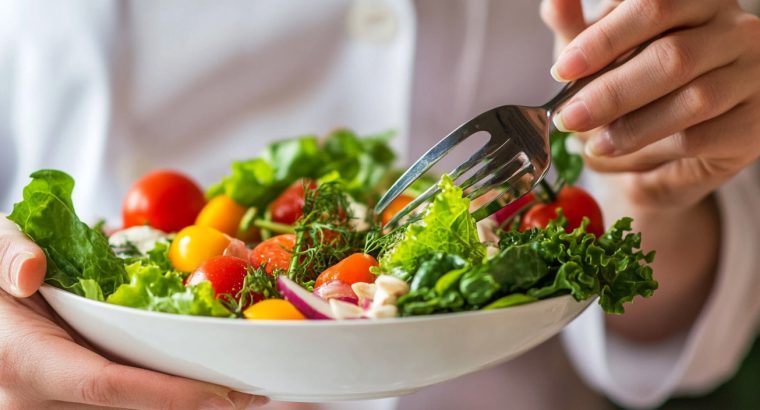The Connection Between Diet and Insulin Resistance
Insulin resistance is a growing health concern worldwide, affecting millions of people and leading to conditions such as Metabolic Syndrome and Type 2 Diabetes. Understanding the connection between diet and insulin resistance is crucial for prevention and management. This comprehensive guide delves into how diet influences insulin resistance and offers tips to mitigate this condition.
Understanding Insulin Resistance
Insulin resistance occurs when cells in your muscles, fat, and liver don’t respond well to insulin and can’t easily take up glucose from your blood. Consequently, your pancreas produces more insulin to help glucose enter your cells. Over time, this makes it hard to maintain normal blood glucose levels, potentially leading to prediabetes or Type 2 Diabetes.
Key Factors Contributing to Insulin Resistance:
- Genetics: Family history can increase your risk.
- Sedentary Lifestyle: Lack of physical activity contributes to weight gain and insulin resistance.
- Obesity: Excess fatty tissue, particularly abdominal fat, can lead to insulin resistance.
- Dietary Habits: High intake of refined sugars and unhealthy fats can worsen insulin sensitivity.
Understanding these factors offers insight into the profound impact of diet on insulin resistance.
How Diet Influences Insulin Resistance
Diet plays a crucial role in managing insulin sensitivity. Certain dietary patterns have been shown to worsen insulin resistance, while others can improve it. Here we explore how different dietary components affect insulin resistance.
Carbohydrates and Insulin Resistance
Carbohydrates are often in the spotlight when discussing insulin resistance. The type and amount of carbohydrates consumed can have a significant impact on blood sugar levels.
Refined Carbohydrates: Foods like white bread, pastries, and sugary drinks are quickly broken down, causing spikes in blood glucose and subsequent insulin release. Over time, this can lead to insulin resistance.
Complex Carbohydrates: Whole grains, legumes, fruits, and vegetables have a lower glycemic index and are digested more slowly, leading to more stable blood sugar levels.
Fiber-Rich Foods: Foods high in fiber can help control blood sugar levels by slowing digestion and reducing insulin spikes. Aim for a diet rich in fruits, vegetables, and whole grains to improve insulin sensitivity.
Fats and Insulin Resistance
Not all fats have the same effect on insulin resistance. Understanding the type of fats consumed is essential.
Saturated and Trans Fats: Found in red meat, cheese, and processed foods, these fats can increase insulin resistance.
Unsaturated Fats: Found in foods like avocados, nuts, olive oil, and fish, unsaturated fats can improve insulin sensitivity and are associated with healthier diets such as the Mediterranean diet.
Proteins and Insulin Resistance
The source and amount of protein in your diet can also influence insulin sensitivity.
Animal Proteins vs. Plant Proteins: Diets high in red and processed meats have been linked to higher insulin resistance, whereas diets rich in plant-based proteins (such as beans, lentils, and nuts) may lower risk due to their beneficial fiber content and healthier fat profile.
Micronutrients and Insulin Resistance
Certain vitamins and minerals play roles in insulin action and glucose metabolism:
- Magnesium: Associated with improved insulin sensitivity and found in leafy greens, nuts, and whole grains.
- Chromium: Supports insulin function; found in broccoli, barley, and oats.
- Vitamin D: Can impact glucose tolerance and is found in fatty fish, fortified dairy, and sunlight exposure.
Dietary Patterns to Combat Insulin Resistance
Based on studies and evidence, certain dietary patterns are more effective in combating insulin resistance.
The Mediterranean Diet
Rich in fruits, vegetables, whole grains, nuts, seeds, lean proteins, and healthy fats, the Mediterranean diet emphasizes unsaturated fats and complex carbohydrates, beneficial for those with insulin resistance.
Low-Carbohydrate Diets
Diets with restricted carbohydrate intake, such as Keto, can lead to reduced insulin levels and improved insulin sensitivity by lowering blood sugar spikes—a common feature in high-carb diets.
The DASH Diet
Originally designed to combat hypertension, the Dietary Approaches to Stop Hypertension (DASH) diet focuses on fruits, vegetables, lean proteins, and low sodium, naturally improving insulin sensitivity.
Practical Tips for Dietary Adjustments
Improving insulin sensitivity through dietary changes is achievable with these strategic tips:
- Choose Whole Foods: Opt for whole grains over refined products and fill your plate with colorful vegetables and fruits.
- Balance Macronutrients: Ensure a balanced intake of proteins, fats, and carbohydrates, focusing on healthier sources.
- Watch Portion Sizes: Overeating, regardless of food type, can burden your body’s insulin regulation. Practice mindful eating.
- Stay Hydrated: Water is essential for every bodily function, including the transportation and utilization of glucose.
- Limit Sugar Intake: Reduce consumption of sugary beverages and snacks to prevent insulin spikes and potential weight gain.
- Mind Your Fats: Emphasize consumption of unsaturated fats from sources like fish, nuts, and olive oil.
- Incorporate Regular Physical Activity: Combine dietary improvements with regular physical activity to enhance insulin sensitivity significantly.
Conclusion
Understanding the connection between diet and insulin resistance is invaluable for anyone looking to improve their metabolic health. Adopting nutritious dietary patterns not only helps combat insulin resistance but also improves overall well-being. By making conscious choices about what you consume, you’re taking a crucial step towards a healthier future.

